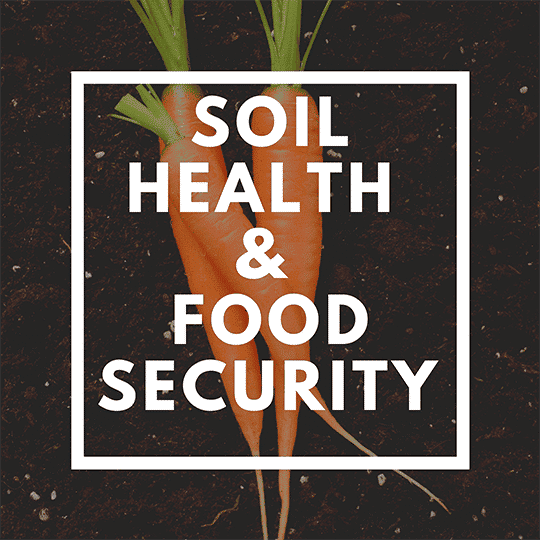According to the Food and Agriculture Organization of the United Nations (FAO), the majority of the world’s soil resources are in fair, poor or very poor condition. Today, 1 in 3 people are facing food insecurity globally as a byproduct of poor soil health. 1 in 3 people must compromise the quality or quantity of their food on a daily basis. The FAO has set the goal to eradicate or significantly decrease this number by 2030. The organization is less then optimistic.
It Starts with the Soil
The quality and quantity of nutrients in your soil will directly correlate with the quality and quantity of the nutrients in your food. Today, our soil is facing large challenges causing it to lose important nutrients that we need daily.
Current farming practices include synthetic mineral fertilizers and nitrogen fertilizers. These fertilization techniques encourage farmers to practice monoculture and/or choose only a few crops per year due to the high yields they help produce. Without rotating crops the farm is reusing the same soil. This compromises the overall health of the soil by allowing diseases and pathogens to adapt and spread quickly. The spread of pathogens and diseases can lead to using stronger herbicides and pesticides. New treatments only mask the problem as the pathogens adapt and continue this cycle.
Soil Health Impacts Your Health
Over-fertilization is affecting the health of the soil today. Generally, only nitrogen, potassium and phosphorus are used in synthetic fertilizers causing a decrease in many other vitamins and minerals. In the late 1900’s, we were seeing a significant loss in protein, calcium, potassium, iron, vitamin B2 and vitamin C. The increased fertilization does increase yields for farmers. However, the end product is proving to be less nutritious.
Other factors such as extreme weather, soil compaction from heavy machinery, deep tillage, and farming near industrial regions are affecting the quality of our soil today. Extreme weather such as flooding or other storms will cause soil erosion depleting the nutrients in the topsoil. This makes it harder for farmers to restore the soil to a healthy state. Soil compaction and deep tillage ultimately decreases pore space in soil. So, plants have a harder time rooting to reach vital nutrients and have access to water in the soil. Pollution from industrial runoff can also compromise soil health, thus compromising the overall health of the food that is produced.
It’s Time to Think About Your Health
Until we start solving some of these issues we are facing today, it is important that you look at your current vitamin and mineral levels. Even if you are generally consuming a healthy, organic diet, you may be eating nutrient deprived foods because of the soil health. You can make up for some deficiencies through supplementation alongside your healthy diet. To figure out your mineral profile, you might want to try a Mineral Hair Analysis Test and/or speak with your doctor. To start absorbing more of the nutrients in your diet and supplement program, fulvic acid can be a great place to start.

